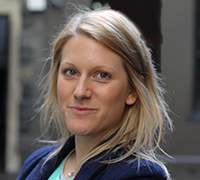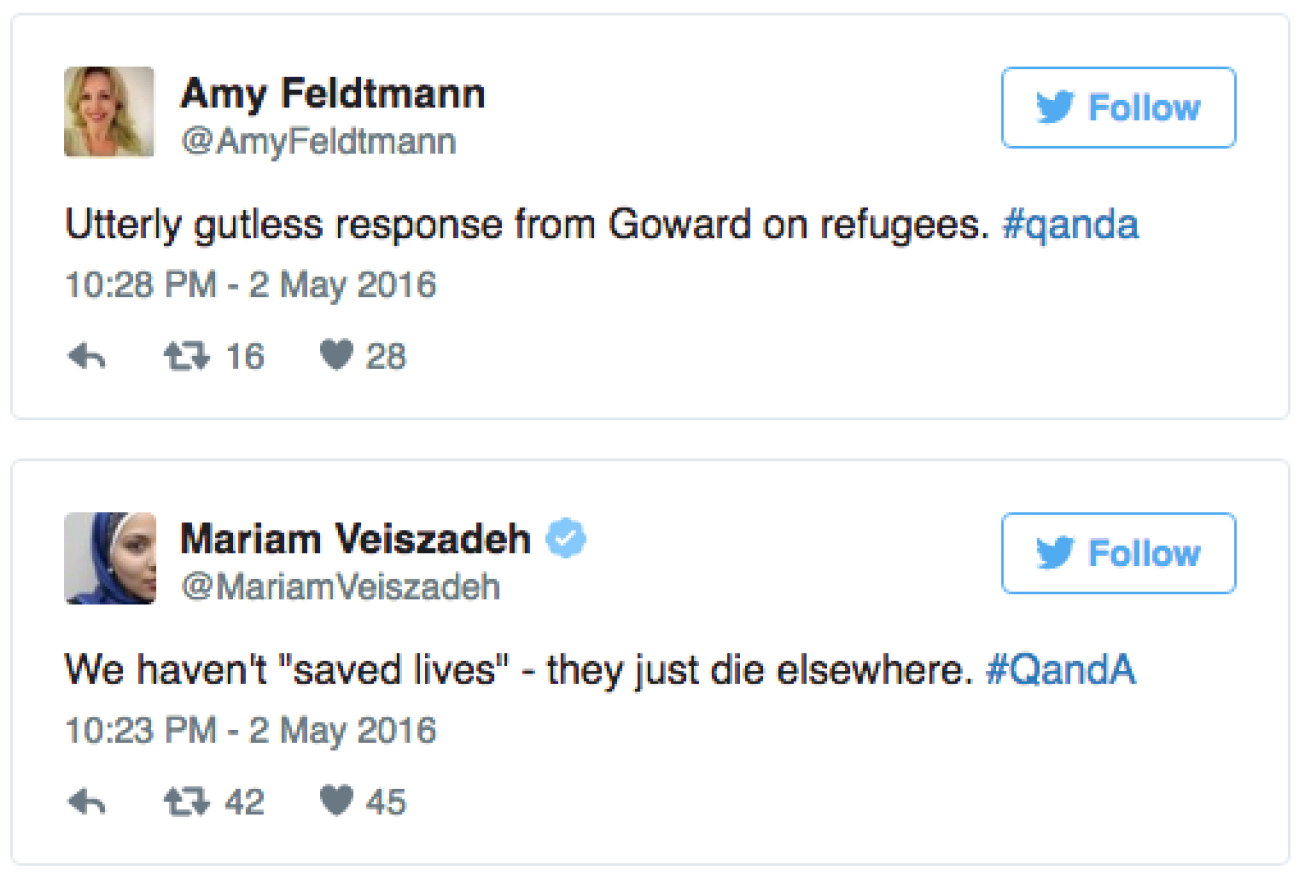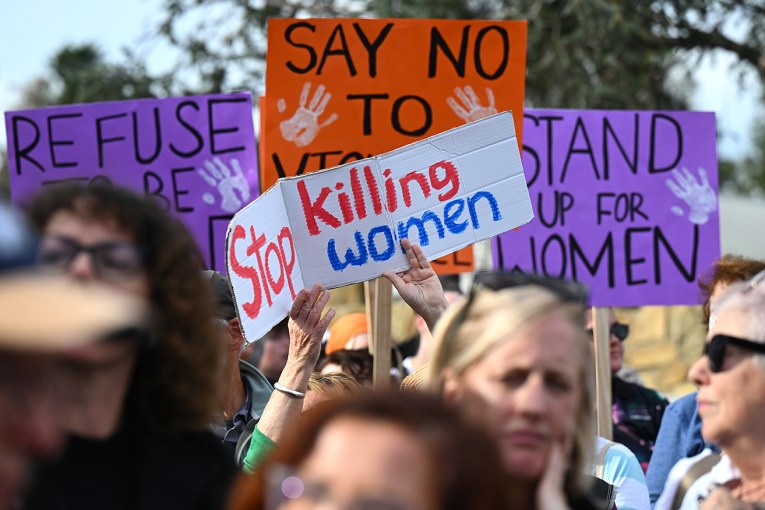Q&A: ‘Refugees are in a complete no-man’s land’


A court ruling that found Australia’s off-shore detention centre in Papua New Guinea to be unconstitutional would have consequences for the future of the policy elsewhere, a political commentator has said.
The Australian Financial Review political editor Laura Tingle told ABC’s Q&A on Monday night that Australia had failed to live up to the moral duties owed to any human being when it came to refugees.
The Supreme Court decision in PNG, which found the Australian-run Manus Island detention centre was illegal, would hurt any future prospects of off-shore detention.
• Intervention ‘demonised Aboriginals as paedophiles’: Q&A
• Q&A: ‘Journalism jumped the shark’ in 60 Minutes saga
• Q&A: Australia’s ‘best kept secret’ revealed
“But it was supposed to be a temporary thing and I think the really disturbing thing about the implications of the Papua New Guinea decision, apart from the fact they’ve ended up looking much better than we do on these issues, is that it makes it almost impossibly think, for Australia to now find someone else to help us if we’re going to continue with this particular policy,” Ms Tingle said.
Some asylum seekers were “basically in a complete no-man’s land” if their application for refugee status was rejected and they did not go home.
NSW Cabinet Minister Pru Goward refused to comment on the issue.
“That’s not an issue I have to say I follow very closely and it is something that obviously the Australian government’s decided it doesn’t want to deal with,” she said.
But Q&A host Tony Jones pressed her on the subject: “Just after your opinion really … do you have have an opinion?”
But Ms Goward would not be drawn on the issue, which comes under the jurisdiction of the federal government.
“I don’t have an opinion. My opinions have to be based on facts,” she said.
James Fallows, an American writer and journalist, said many countries were struggling to cope with refugee numbers.
To the outside world, Australia “does not look good at the moment with this policy”, he said, but added “no one looks good right now”.
“I think rich democratic countries like ours, recognising all the complexities of not wanting to encourage people smuggling and all the rest, do have a moral duty to take in people and to address the root causes of the problem but also to take people on,” he said.
Voters pick ‘who they hate less’
Voters were not interested in engaging with long, detailed documents and speeches, according to newDemocracy Foundation executive director Iain Walker.
He was responding to a question about politicians tendency to “enjoy sensationalism and drama over facts”.
“We have built a system that responds really well to slogans,” Mr Walker said.
“We’re going see a lot of advertising we don’t like and we’re going to see these political ads because they work so well.
“We’ve built a system based on voting for the person you hate less.”
See more of the debate below:
Does sensationalism inhibit politicians making tough decisions & growing our country? @newdemocracyAUS answer #QandA https://t.co/6t4OuF2nwY
— ABC Q&A (@QandA) May 2, 2016









